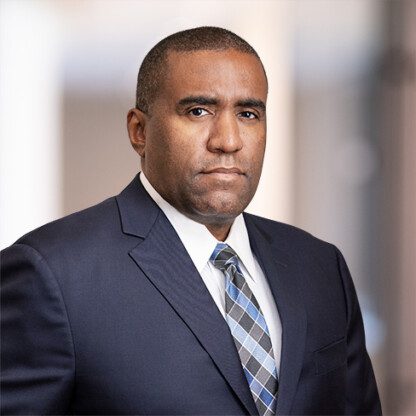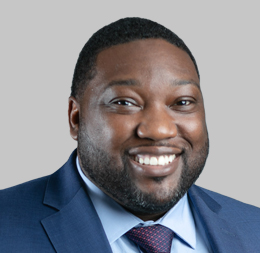August 2024 Recap and Status Update Re: American Alliance For Equal Rights v. Fearless Fund
August 13, 2024
As initially filed in federal court in Atlanta as American Alliance for Equal Rights v. Fearless Fund on August 2, 2023, American Alliance for Equal Rights (AAER) is suing Fearless Fund Management LLC (a black women-run company) for claims of racial discrimination and violations of Section 1981 of the Civil Rights Act of 1866 (Civil Rights Act).
- AAER alleges that Fearless Fund is operating a racially discriminatory program that violates section 1981’s “guarantee of race neutrality” in making “contracts.” AAER claims that Fearless Fund’s grant program, the “Fearless Strivers Grant Contest,” discriminates against other races by awarding $20,000 grants, business support services, and mentorship specifically to Black women-owned businesses. AAER is seeking relief to end Fearless Fund’s grant program. The principals of AAER are the same individuals that organized and lead litigation efforts on behalf of the plaintiffs in the recent Harvard College and University of North Carolina Supreme Court cases outlawing affirmative action in college admissions and a plethora of other cases targeting programs that aid people of color. Some of these cases that have been filed to prevent diversity measures include AAER v. Zamanillo, No. 1:24-cv-509 (D.D.C. Feb. 22, 2024), which challenges a Latino internship program hosted by the National Museum of the American Latino, a part of the Smithsonian Institution; and AAER v. Winston & Strawn LLP, No. 4:23-cv-04113 (S.D. Tex. 2023), AAER v. Perkins Coie LLP, No. 3:23-cv-01877-L (N.D. Tex. 2023) and AAER v. Morrison & Foerster LLP, No. 1:23-cv-23189 (S.D. Fl. 2023) which challenged the 1L diversity programs for these law firms.
- Fearless Fund is an Atlanta-based venture capital fund founded by women of color that invests in women of color led businesses seeking early-stage investment. Fearless Fund’s mission and business objective is “to bridge the gap in venture capital funding for women of color founders for potential high-growth and scalable companies.” Recent studies report that companies led by Black women typically receive less than one percent of all venture capital funding.
- September 27, 2023: Fearless Fund’s Defense succeeds as AAER’s Motion for Preliminary Injunction Fails. On September 27, 2023, Judge Thomas W. Thrash of the U.S. District Court for the Northern District of Georgia denied AAER’s motion for preliminary injunction. See American Alliance for Equal Rights v. Fearless Fund Management, LLC, No. 1:23-cv-3424-TWT (N.D. Ga. 2023). AAER argued a preliminary injunction was necessary because its members were harmed since they are ineligible to apply for Fearless Fund’s grants due to their race. Judge Thrash opined that the law disagreed and determined that the First Amendment issue was dispositive and should be adjudicated with certainty to resolve the legal issues under consideration. The Court stated that “because the First Amendment may bar AAER’s claim, the Court cannot conclude that AAER has carried its heavy burden of showing a clear likelihood of success on the merits at this stage.”
- September 30, 2023: AAER Quickly Files, and is Awarded, an “Injunction Pending Appeal.” See American Alliance for Equal Rights v. Fearless Fund Management, LLC, (Appeal No. 23-13138-D. Doc. 116. 11thCir. 2023). This order immediately paused the Fearless Strivers Grant Contest until a full appeal could be heard by the 11th Circuit Court of Appeals. The Fearless Fund had annually awarded four grants each year. At this point in 2023, the Fearless Strivers Grant Contest already had awarded three grants, and this injunction ultimately prevented them from awarding their typical fourth grant. Instead of viewing the program to remedy systemic discrimination against women of color, as evidenced by the disproportionately low amount of funding awarded to women of color, the Court stated that Fearless ran a “racially exclusionary program” and that it was “substantially likely to violate” Section 1981 of the Civil Rights Act.”
- June 3, 2024: AAER wins its appeal to the 11th Circuit Court of Appeals, preliminarily prohibiting the Fearless Strivers Grant Contest from making grants. See American Alliance for Equal Rights v. Fearless Fund Management, LLC, (Appeal No. 23-13138-D. Doc. 125-1. 11thCir. 2023). On June 3, 2024, a panel of judges in a 2-1 decision (Judges Newsom and Luck in the majority and Judge Rosenbaum dissenting) ruled that (1) AAER has standing to bring its case and (2) relief was appropriate because the Fearless Strivers Grant Contest is substantially likely to violate § 1981 of the Civil Rights Act. § 1981 of the Civil Rights Act was initially enacted to safeguard Black Americans’ rights to enjoy the same contractual rights as white Americans, however, the 11th Circuit diverged from the section’s apparent original legislative intent and applied it to this case.
- Standing. Although AAER never fully identified the allegedly harmed individuals, the 11th Circuit determined that organizations could bring suits on behalf of its members and maintain their anonymity through pseudonyms. The 11th Circuit also determined that AAER’s representatives in the lawsuit were “able and ready” to enter the Fearless Strivers Grant Contest, and as a result they had Article III standing to challenge the contest’s exclusion of non-Black applicants.
- Injunctive Relief. In granting relief to AAER, the panel made three important underlying decisions: (1) the Fearless Strivers Grant Contest is a contract and so it is subject to § 1981; (2) the Fearless Strivers Grant Contest fails to rise to the affirmative action “remedial-program exception” developed in the Supreme Court Case United Steelworkers of America, AFL-CIO-CLC v. Weber, because it presents an absolute bar to other races, which is a standard set in a later Supreme Court case, Johnson v. Transportation Agency (480 U.S. 616 (1987) [wherein an agency could consider the sex of an applicant as one factor for an affirmative action plan that was voluntarily adopted for hiring and promoting minorities and women]; and (3) the Fearless Strivers Grant Program is not protected as expressive conduct under the First Amendment’s Freedom of Speech Clause. This 11th Circuit panel decided that allowing Fearless Fund’s practice to “only” entertain applications from Black owners as a form of speech would justify “every act of race discrimination.”
- The Dissent. Ultimately, Judge Rosenbaum’s dissent is based on the Plaintiff’s lack of standing. She likened the Plaintiff’s claims to soccer players flopping on the field. She argued that no actual injury has been shown, as no real plaintiff has been presented as being “able and ready” to apply for the contest.
- Further Considerations
- Jurisdiction. This ruling is binding in the States of Georgia, Florida, and Alabama. This ruling could bring any grant program, educational scholarship program, or almost any charitable program under scrutiny in these states. Other federal appellate courts and states, however, could choose to interpret § 1981 differently unless and until the United States Supreme Court intervenes.
- Procedural – The case has been remanded to the Georgia district court. There are currently no scheduled court hearings on the docket as Fearless Fund weighs its options for next steps.
- Practical Application – Organizations should more broadly define requirements for future DEI efforts. Some courts in the United States are now viewing efforts to remedy systemic racism and discrimination as themselves being discriminatory when race is used as a factor for entry into a beneficial program. Therefore, corrective actions to solve the imbalance that past discrimination has caused must be better focused on an individual’s current contributions and efforts toward a diversity goal that the program shares, as opposed to the race of the individual applicant.
- Jurisdiction. This ruling is binding in the States of Georgia, Florida, and Alabama. This ruling could bring any grant program, educational scholarship program, or almost any charitable program under scrutiny in these states. Other federal appellate courts and states, however, could choose to interpret § 1981 differently unless and until the United States Supreme Court intervenes.
Author(s)
Related Insights
July 25, 2025
Foley Viewpoints
Thorny Laws That ICHRA Vendors Should Consider, Part Three: FinTech Edition
We continue our series on the legal and regulatory challenges facing individual coverage health reimbursement arrangements (ICHRAs); this…
July 24, 2025
Manufacturing Industry Advisor
Foley Automotive Update
Analysis by Julie Dautermann, Competitive Intelligence Analyst Foley is here to help you through all aspects of rethinking your long-term…
July 23, 2025
Foley Viewpoints
The One Big Beautiful Bill and Workplace Immigration Enforcement
The “One Big Beautiful Bill Act,” signed into law by President Trump on July 4, 2025, will fund government efforts to continue to…


